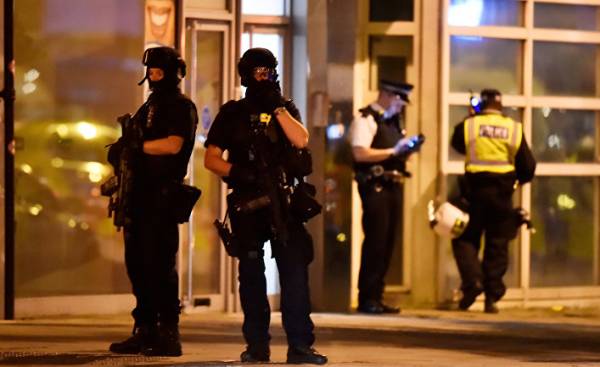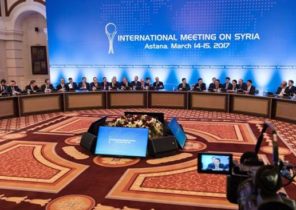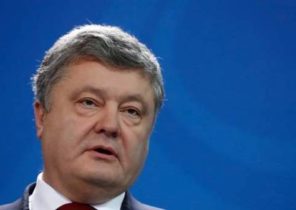
And here we are again. The incident of 3 July the attack on London bridge and borough Market has claimed seven lives, sending a lot of people in the intensive care unit in critical condition. After a few hours after the attack — the third in England for three months — LIH (banned in Russia as a terrorist organization, ed.) has claimed responsibility for the incident, as in the two previous attacks. Of the three participants of the attack at least one, Khurram butt (Khuram Butt), has long been held in Britain extremist activities. He was a member of one of the Islamist structures formed in the 1990s and blossomed after the terrorist attack of al-Qaeda on September 11. Although most of founder of these groups of preachers for al-Muhajiroun, which consisted of a butt, so was Omar Bakri Mohammed (Omar Bakri Muhammad) — had already left the country, their heritage has not wavered.
Bakri had established al-Muhajiroun (“the emigrants”) in 1996. Outlawed, this radical group sought to recreate the Caliphate. After Bakri was finally expelled from Britain in 2005 (it is now in a Lebanese jail), his place was inherited by anjem choudary (Anjem Choudary), the famous British jihadist who led the group. Since its inception, al-Muhajiroun became more radical, supporting Osama bin Laden, the September 11 attacks and al-Qaeda. Many of its members were convicted of terrorism. In September 2016 Choudary was sentenced to five and a half years in prison for supporting ISIS.
In recent years several members of the group were in Syria. One of them was part of Rakhine Abu Aziz (Aziz Abu Tahin), born in Luton and participated in the planning of fighting ISIS with the West. He was killed by a U.S. drone strike in raqqa, applied in year 2915. Another important member of the group, Abu Rumaysah (Abu Rumaysah), moved his wife and five children in ISIS-held territory. Presumably, Rumaysah and another British member of the group, Muhammad Rida, Alhak (Mohammad Ridha Alhak), appeared in the video of ISIS executions.
Those who remained in the country, always present in the orbit of terrorist attacks. Butt, born in Pakistan, a 27-year-old British citizen, appeared in a recent documentary about ISIS supporters in the UK, filmed by Channel 4. There he praised the barbarism of ISIS and rejoiced in the acts of the latter.
Butt will not be the last British jihadist who committed a terrorist act in this country. The attack on London bridge might seem Amateur and poorly thought out, but the jihadist did what they wanted. For every, even the most primitive attack is extensive strategic theory of the global Jihad, the forerunner who has for many years burned the country from Afghanistan to Yemen and Syria.
The leaders of al-Qaeda (banned in Russia, ed.) so I forgot about everything else during the preparation of the terrorist attack of 11 September 2001, which had not given much thought about its consequences. The group decided that the United States will have to respond to such a crime, as did bill Clinton in 1998 after the attack on the American embassies in Tanzania and Kenya caused associated with Osama bin Laden groups. In response, the Clinton administration launched a chain of attacks on hideouts of bin Laden in Sudan and Afghanistan. In other respects, however, the response was lukewarm.
* * *
However, al-Qaida learned an important lesson — if you push US, they will be forced to act, and then sought group. What not al-Qaeda did not realize, however, is the fierce determination of Americans.
While invaded Afghanistan in late 2001, U.S. forces finished off the Taliban (banned in Russia, ed.), capturing or destroying a significant part of its leadership, al-Qaeda is concerned about the excessiveness of their actions — in the end, what was the meaning of the September 11 attacks if he’s brought the global Jihad the threat of collapse?
This led to a sharp dispute among the leaders of the movement. There are two different approaches that were considered opposite, yet both of them did not use ISIS.
The first was formulated by the theorist under the pseudonym Abu Bakr Naji (Abu Bakr Naji). According to Naji, al-Qaeda had to work through the horror, as an early adopter of particularly cruel and bloody methods. He believed that the weak Western society don’t have the guts to endure a long war. Therefore, believed Naji, the jihadists should increase the degree of their barbarity and atrocities that will allow them to regain power over the territory of Afghanistan and to establish a platform for further attacks, as did the Taliban (banned in Russia, ed).
Positions Naji strongly opposed the other a theoretician, Abu Musab al-Suri (military nickname Mustafa Setmariam Nasara [Mustafa Setmariam Nasar]). He believed that the US response to 9/11 was too important to the group could regain freedom for maneuver, which she had under the Taliban. The global jihadist movement had to accept the new reality.
According to the Norwegian scientist Bryngarw lia (Brynjar Lia), who wrote the authoritative biography of Suri, recently opposed the attack on 9 September, exactly because they were worried about the possibility of al-Qaeda to withstand a strong American response. When it finally came, Suri felt their views confirmed.
It confirmed his long held view that the global Jihad can only succeed by being decentralized. Suri began to fight for the decentralization since the early 1990s, arguing that the conventional vertical command only hurt the jihadists. At the time, militant groups have been mopping up in Egypt, Libya and Algeria, which was made possible due to the fact that they formed a single, larger structure.
However, most of all influenced the position of Suri uprising led by the Muslim brotherhood in the Syrian city of Hama in the late 1970s and early 1980s. He described a related experience in a 900-page book entitled “the Islamic jihadist revolution in Syria.” The uprising was brutally suppressed by President Hafez al-Assad (Hafez al-Assad), the father of Bashar al-Assad. Excessive centralization and formalized command led to the defeat of the revolution, believed Suri. The movement was small and needed more Autonomous cells capable of conducting its own guerrilla war to undermine the local population.
Although Suri began to formulate his ideas since the early 1990s, they turned into full-fledged theory only after September 11. Towards the end of 2004 he published a major work, “the Call to global Islamic resistance”, which outlined his vision for the future of the global Jihad.
Suri came to terrorism and its consequences more calculating than bin Laden and his followers from al-Qaeda. The latter had spent too much time with a loud, large-scale attacks, such as double attack on the embassies in 1998, September 11, the Madrid bombings or the attack on 7 July 2005 in London. Suri welcomed the success of these attacks, but most of all he wanted to conduct a constant series of small attacks, the likes of which we saw in the UK. Despite the public display of confidence and unity in Western society, these attacks have succeeded in creating an atmosphere of fear and mistrust.
“Jihad carried out by individuals or terrorist cells with the use of guerrilla methods in urban or rural areas is a key tool to thin down the enemy and force him to retreat,” wrote Suri’s “Call to global Islamic resistance.”
To justify actions against the civilian population, he quoted Surah 8 verse 60 of the Koran: “And prepare for them, how can forces and troops of cavalry; you will ultrasite this enemy of Allah and your enemy and others besides them”. Jihadists often quote this passage to justify acts of indiscriminate mass terror. “This generous Sura calls for terror against the aggression of the enemies of God among the infidels and their servants,” wrote Suri.
He interpreted the call to “intimidate the enemy” in a broad sense, arguing that “terrorism is the essence of the duty of the believer, and the murder laid by the Prophet’s tradition.”
This became known as the doctrine of the “army of one”. Its essence is simple — individuals able to carry out destructive and deadly attacks without a vertical command structure. The lack thereof hinders the prevention of their attacks. In fact, the theoretical basis for the threats we faced in the UK today, was founded in the Hindu Kush mountains for more than a decade ago.
* * *
The al Qaeda leadership chose the doctrine of Suri, finding the approach Naji unrealistic. Vision for the future of the global Jihad proposed by Suri, it was easier and jadestone.
However, it is best to apply this doctrine in practice, the branch of al-Qaeda in Yemen, known as AQAP. Under the guidance of Anwar al-Awlaki, the Yemeni-born American cleric who was killed in the end strike us drones, has been running an aggressive campaign of global Jihad.
Awlaki so dangerous wasn’t just his personal charisma, but his experience in the West. He understood the way of thinking Western Muslims and knew how to radicalize.
AQAP issued a magazine called “Inspire” — the predecessor of a glossy magazine Dabiq ISIL, who inspired and praised attacks against the West. Inspire published the English translation of some of the texts of Abu Musab al-Suri. Much of his work remains untranslated from the Arabic, and therefore not available for many Western Muslims. AQAP changed it, by highlighting the most destructive part of it to Western readers.
First of all, Inspire has created and popularized the program of “Jihad freely available” (DSD), promoting self-attack by individual jihadists. It provided a simple guide to conduct simple attacks on the civilian population with the use of homemade bombs, knives and vehicles.
The program produced a significant effect. According to a forthcoming book about Awlaki written by Alexander, Meleagrou-Hitchenson (Alexander Meleagrou-Hitchens), of the 212 cases of terrorism investigated in the United States between 2009 and 2016, 66 directly associated with this cleric. In other words, Awlaki is responsible for almost one third of cases of terrorism in the United States for seven years.
“In this section, the DSD, we will offer the readers ways in which they can lead their own Jihad” — as the Inspire magazine described its programme of DSD. “This will enable the Muslims to prepare at home, instead of a dangerous travel abroad”. As explained Awlaki, it was “a disaster for the oppressors of the imperialist Nations… the worst nightmare of America.”
The results are felt not only in the USA. In may 2010, choudhrie’s Roshanara (Roshonara Choudhry), at that time expelled from the University at the age of 21 years, made an attempt on Stephen Timms (Stephen Timms), a member of Parliament from the labour party from East ham, as he was in the hospital in his constituency. The reason for the attack was that he voted for the war in Iraq. During the trial, choudhrie’s said that attack Timms with a knife, it prompted the program DSD Awlaki.
The murder of the Royal Fusiliers Lee Rigby, committed by Michael Adebolajo and Michael Adebowale in may 2013, was also inspired by Awlaki. Rigby was attacked on the streets of London’s Woolwich. First, the attackers moved his car, then finished it off with a knife.
Documents captured by the U.S. after emerging from Osama bin Laden RAID have underscored the uncertainty that the leader of al-Qaeda have experienced regarding the strategy of AQAP. Attacks on civilians using vehicles seemed to him erroneous and Amateur, and violent enough to turn people away from Jihad by violent means.
* * *
The Islamic state never worried about public opinion. It originated in 2003, after the invasion of Iraq, and at the time was headed by Abu Mus’ab al-Zarqawi, a Jordanian by birth. In contrast to the Central leadership of al-Qaeda, fend off Western troops in Afghanistan, Zarqawi enjoying barbarism, was given a chance for war with the main enemy groupings — America and great Britain — in the heart of the Arab world.
In these circumstances, he chose the doctrine of selfless cruelty Naji. Recent proposed methods have been tested in Syria and Iraq, giving rise to special acts of atrocities against the local population in ISIL areas of control. However, in their attacks on the West, the group continues to use the paradigm of decentralization Suri.
ISIS has released a substantial body of literature promoting bloody attacks in the home countries of their followers. In his journal, “Rumia” (Rumiyah), which means “Rome”, one of the illustrations calls for attacks using trucks, describing them as “fair terror”. She encourages readers to get “big and heavy” car with a “slightly elevated chassis and the bumper”. Among the proposed goals are “crowded streets, street markets and a large street celebration.”
Another picture distributed by the group in social networks, calls on supporters last “to kill citizens of Nations of crusaders and move their cars.”
Claimed the lives of 86 people, the attack in nice in 2016 has shown how effective can be a relatively simple instrument in the hands of the single. One of the ways in which terrorism is the provocation of a series of attacks after the perpetrators of the first terrorist attack inspired and gave confidence to his imitators. Exactly and so began the wave of attacks that swept the UK today.
Terrorists inspired by the actions of their own kind, and we saw flashes of terrorist attacks across Europe, especially in France and Germany.
* * *
All this happened out of nowhere. For many years we have allowed radical clerics like Obamar Bakri Mohammad, Angela Choudary, Abu Hamza and others to preach on the streets and in the mosques of great Britain. They spread among young Muslims lethal calls for the isolation from British society, often quoting the same verses of the Koran, as the theorists of al-Qaeda like al-Suri.
A leaflet issued in 2006, the structure, which belonged to Khurram butt, praised the terrorism of the same kind that struck London in our day. “Jihad against kafir (infidels) enemies of Allah, inspires fear in their hearts. was established in it. — It will bring victory to Islam, humiliate his enemies and make believers.”
Al-Muhajiroun often celebrated the atrocities of the terrorists in their own country and abroad. We are faced with a culture that grew up where young people reject British values. Instead, they devote themselves to the wars outside the country and bring them to our homes. Once the main threat to the UK was Yemen and Anwar al-Awlaki — at that time there was located the base of al-Qaeda. However, after the death of al-Awlaki, his influence declined significantly.
From this we can learn a lesson. The dissemination of ideology requires vigorous activity of its masterminds. Their death or retreat under military pressure greatly reduces the threat presented to it.
More recently, the Islamic state boasted of his own successes. Now, when his forces defeated in Mosul, practical the lost group, the prestige of ISIS has fallen markedly. Its actual capital in Syria’s raqqa also gradually surrounded by coalition forces.
As in Iraq, the capture of the city will be dangerous and challenging, but the raqqa will fall. Meanwhile, the attacks are “armies of one soldier” will only continue to grow in frequency and violence, however this is the critical stage that we must endure if we hope to finally destroy the threat of ISIL and similar groups. Our security can only be built on their ruins.







